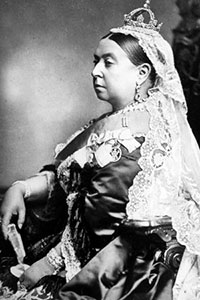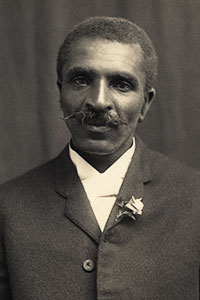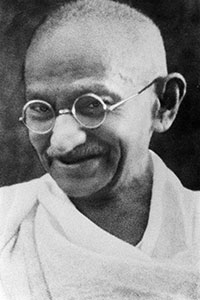
Abraham Lincoln
16th President of the United States
Office: Oval Office
Vice Presidents:
Hannibal Hamlin (1861–1865)
Andrew Johnson (1865)
Abraham Lincoln was born February 12, 1809, the second child of Thomas and Nancy Hanks Lincoln, in a one-room log cabin on the Sinking Spring Farm in Hardin County, Kentucky (now LaRue County). He was a descendant of Samuel Lincoln, who migrated from Norfolk, England to Hingham, Massachusetts, in 1638. Samuel's grandson and great-grandson began the family's western migration, which passed through New Jersey, Pennsylvania, and Virginia. Lincoln's paternal grandfather and namesake, Captain Abraham Lincoln, moved the family from Virginia to Jefferson County, Kentucky in the 1780s. Captain Lincoln was killed in an Indian raid in 1786. His children, including six-year-old Thomas, the future president's father, witnessed the attack. After his father's murder, Thomas was left to make his own way on the frontier, working at odd jobs in Kentucky and in Tennessee, before settling with members of his family in Hardin County, Kentucky, in the early 1800s.

Queen Victoria
Queen of the United Kingdom
Office: Kensington Palace
Spouse: Albert of Saxe-Coburg and Gotha
According to one of her biographers, Giles St Aubyn, Victoria wrote an average of 2,500 words a day during her adult life. From July 1832 until just before her death, she kept a detailed journal, which eventually encompassed 122 volumes. After Victoria's death, her youngest daughter, Princess Beatrice, was appointed her literary executor. Beatrice transcribed and edited the diaries covering Victoria's accession onwards, and burned the originals in the process. Despite this destruction, much of the diaries still exist. In addition to Beatrice's edited copy, Lord Esher transcribed the volumes from 1832 to 1861 before Beatrice destroyed them. Part of Victoria's extensive correspondence has been published in volumes edited by A. C. Benson, Hector Bolitho, George Earle Buckle, Lord Esher, Roger Fulford, and Richard Hough among others.

George Washington Carver
Botanist and Inventor
Office: Tuskegee Institute
Carver was born into slavery in Diamond Grove, Newton County, near Crystal Place, now known as Diamond, Missouri, possibly in 1864 or 1865, though the exact date is not known.
In 1896, Booker T. Washington, the first principal and president of the Tuskegee Institute, invited Carver to head its Agriculture Department. Carver taught there for 47 years, developing the department into a strong research center and working with two additional college presidents during his tenure. He taught methods of crop rotation, introduced several alternative cash crops for farmers that would also improve the soil of areas heavily cultivated in cotton, initiated research into crop products (chemurgy), and taught generations of black students farming techniques for self-sufficiency.

Mahatma Gandhi
Leader of the Indian independence movement
Office: New Delhi
Gandhi was 24 when he arrived in South Africa in 1893 to work as a legal representative for the Muslim Indian Traders based in the city of Pretoria. He spent 21 years in South Africa, where he developed his political views, ethics and political leadership skills.
Although Gandhi was not the originator of the principle of nonviolence, he was the first to apply it in the political field on a large scale. The concept of nonviolence (ahimsa) and nonresistance has a long history in Indian religious thought. Gandhi explains his philosophy and way of life in his autobiography The Story of My Experiments with Truth. Gandhi realized later that this level of nonviolence required incredible faith and courage, which he believed everyone did not possess. He, therefore, advised that everyone need not keep to nonviolence, especially if it were used as a cover for cowardice, saying, "where there is only a choice between cowardice and violence, I would advise violence."
